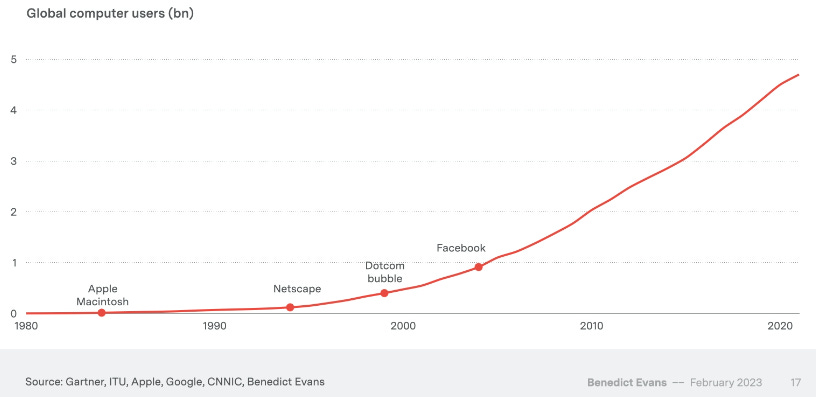Top Reads, Listens, Follows & Takeaways of the week
Back in my day...
Takeaways:

Each generation goes through their own phase of hearing from their elders about how it was ‘back in my day’. Towards the end of my service in the Marines I heard guys lamenting about how soft things were getting because Marines could no longer punch rank insignia into newly promoted Marines or beat the legs of a new Corporal when they earned their Blood Stripe. These acts would routinely draw blood or cause Marines to be limping for days. But as with all things in life as time passes we generally evolve for the better, and sometimes for the worse.
I came across the above chart this week. It’s interesting to see data validating that things really were different back in the day. Who’s to say whether these trends are ‘good’ or ‘bad’. Unlike the example of hazing above, it’s less clear. My hunch is that these trends are strongly correlated to, if not caused by, the two charts below. In my own life I routinely observe kids ten years old and younger in a catatonic state, eyes glued to YouTube. This will undoubtedly lead to behavioral and societal changes in the next generation, we just don’t know how exactly they’ll manifest.
Chart Sources - Steven Faerm (top chart) and Benedict Evans (bottom two charts)
Reads:
Payoff-based College Admissions (here and here)
The Active Management of your life, thoughts by Bob Seawright (here)
Steve Cohen’s Amazin’ Bid to Own New York (here)
A glimpse of the American Dream in South LA by Chris Arnade (here)
The Making of Succession’s Tom Wambsgans (here)
Private Equity's Other Illiquidity Premium (here)
Listens:
David Einhorn and Patrick O'Shaughnessy - The Long and Short of Investing (here)
Barry Ritholtz and Howard Lindzon - Strong Opinions, Loosely Held (here)
Michael Cembalest - The Renewable Transition in Adolescence (here)
Follow, Watch & Other great content:
60 Minutes: Prosthetic tech advances give sense of touch (here)



Ken, thanks for the comment.
I don't necessarily see any of the above charts as showing 'problems', and therefore I don't think a resolution is required. I simply think the data demonstrates ways in which society is evolving. If it's evolving for 'good' or 'bad' is really just subjective.
I bet the trends that are identified in the data continue, but how they manifest in society over longer periods is unknowable. Perhaps future generations will be less social (as defined traditionally) but maybe they will have such a grasp of technology that it enables them to cure cancer.
Thanks for reading.
Jack
As you know I’m an engineer. One of our tools has always been data to support our thesis and conclusions. In my early career I worked extensively in instrumentation to support machinery analysis. I remember listening to a Physicist with a PHD who was trying to justify additional resources in the Naval community by looking at parts usage on different propulsion machinery. He showed a chart of parts requisitions through the material commands. He pointed out some increases in the last year as potential indicators of future equipment failures. ( The graphs did in fact show increases ).
From my perspective sitting in this conference the problem wasn’t the data it was his conclusions. I raised my hand and said Mark ( his first name). I concur that your graph shows the increases in requisitions but did you ever consider that maybe the part requests were just a Battle Group with numerous ships including large platform ships including aircraft carriers returning from deployment and resupplying their storerooms.
Not saying I was right but that sometimes we need to look at changes in data not just to support an argument but as a step in our thorough process of problem identification with the most important step being problem resolution.